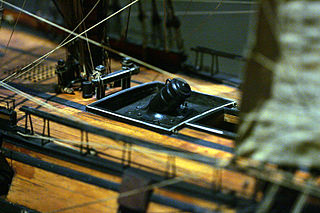Erebus is the Greek god of darkness as well as a region of the Greek underworld.
Contents
Erebus may also refer to:
Erebus is the Greek god of darkness as well as a region of the Greek underworld.
Erebus may also refer to:
Mount Etna is an active volcano on the east coast of Sicily.
Mars is the fourth planet from the Sun.
Xanthus or Xanthos may refer to:

Mount Erebus is the southernmost active volcano on Earth, located on Ross Island in the Ross Dependency in Antarctica. With a summit elevation of 3,792 metres (12,441 ft), it is the second most prominent mountain in Antarctica and the second-highest volcano in Antarctica. It is the highest point on Ross Island, which is also home to three inactive volcanoes: Mount Terror, Mount Bird, and Mount Terra Nova. It makes Ross Island the sixth-highest island on Earth.
Scott may refer to:

Mount Terror is an extinct volcano about 3,230 metres (10,600 ft) high on Ross Island, Antarctica, about 20 nautical miles eastward of Mount Erebus. Mount Terror was named in 1841 by polar explorer Sir James Clark Ross for his second ship, HMS Terror. The captain of Terror was Francis Crozier, a close friend of Ross for whom the nearby Cape Crozier is named.
Five ships of the Royal Navy have been named HMS Erebus after Erebus, the dark region of Hades in Greek Mythology.

HMS Erebus was a Hecla-class bomb vessel constructed by the Royal Navy in Pembroke dockyard, Wales, in 1826. The vessel was the second in the Royal Navy named after Erebus, the personification of darkness in Greek mythology.

A bomb vessel, bomb ship, bomb ketch, or simply bomb was a type of wooden sailing naval ship. Its primary armament was not cannons – although bomb vessels carried a few cannons for self-defence – but mortars mounted forward near the bow and elevated to a high angle, and projecting their fire in a ballistic arc. Explosive shells or carcasses were employed rather than solid shot. Bomb vessels were specialized ships designed for bombarding fixed positions on land. In the 20th century, this naval gunfire support role was carried out by the most similar purpose-built World War I- and II-era monitors, but also by other warships now firing long-range explosive shells.
Artemis is the ancient Greek goddess of the hunt, the wilderness, wild animals, the Moon, and chastity.

The Hecla class was a class of bomb vessels of the Royal Navy of the early 19th century. They were designed for use as bomb or mortar ships and were very heavily built. Eight ships were launched; all were converted for use as exploration or survey ships. Four ships of the class are known for the role they played in Arctic and Antarctic exploration.

HMS Terror was a specialised warship and a newly developed bomb vessel constructed for the Royal Navy in 1813. She participated in several battles of the War of 1812, including the Battle of Baltimore with the bombardment of Fort McHenry. She was converted into a polar exploration ship two decades later, and participated in George Back's Arctic expedition of 1836–1837, the successful Ross expedition to the Antarctic of 1839 to 1843, and Sir John Franklin's ill-fated attempt to force the Northwest Passage in 1845, during which she was lost with all hands along with HMS Erebus.

Francis Rawdon Moira Crozier was an Irish officer of the Royal Navy and polar explorer who participated in six expeditions to the Arctic and Antarctic. In 1843, he became a Fellow of the Royal Society for his scientific work during his expeditions. Later, he was second-in-command to Sir John Franklin and captain of HMS Terror during the Franklin expedition to discover the Northwest Passage, which ended with the loss of all 129 crewmen in mysterious circumstances.
A mariner is a sailor.

Sir James Clark Ross was a British Royal Navy officer and explorer of both the northern and southern polar regions. In the Arctic, he participated in two expeditions led by his uncle, John Ross, and in four led by William Edward Parry: in the Antarctic, he led his his own expedition from 1839 to 1843.
Circe was a goddess or sorceress in Greek mythology.

The Ross expedition was a voyage of scientific exploration of the Antarctic in 1839 to 1843, led by James Clark Ross, with two unusually strong warships, HMS Erebus and HMS Terror. It explored what is now called the Ross Sea and discovered the Ross Ice Shelf. On the expedition, Ross discovered the Transantarctic Mountains and the volcanoes Mount Erebus and Mount Terror, named after each ship. The young botanist Joseph Dalton Hooker made his name on the expedition.

Thomas Abernethy was a Scottish seafarer, gunner in the Royal Navy, and polar explorer. Because he was neither an officer nor a gentleman, he was little mentioned in the books written by the leaders of the expeditions he went on, but was praised in what was written. In 1857, he was awarded the Arctic Medal for his service as an able seaman on the 1824–25 voyage of HMS Hecla, the first of his five expeditions for which participants were eligible for the award. He was in parties that, for their time, reached the furthest north, the furthest south (twice), and the nearest to the South Magnetic Pole. In 1831, along with James Clark Ross's team of six, Abernethy was in the first party ever to reach the North Magnetic Pole.

John Edward Davis (1815-1877) was a Royal Navy officer, hydrographic surveyor and artist, noted for his illustrations of the Antarctic voyage of James Clark Ross (1839-1843) and for his expertise in deep-sea sounding.